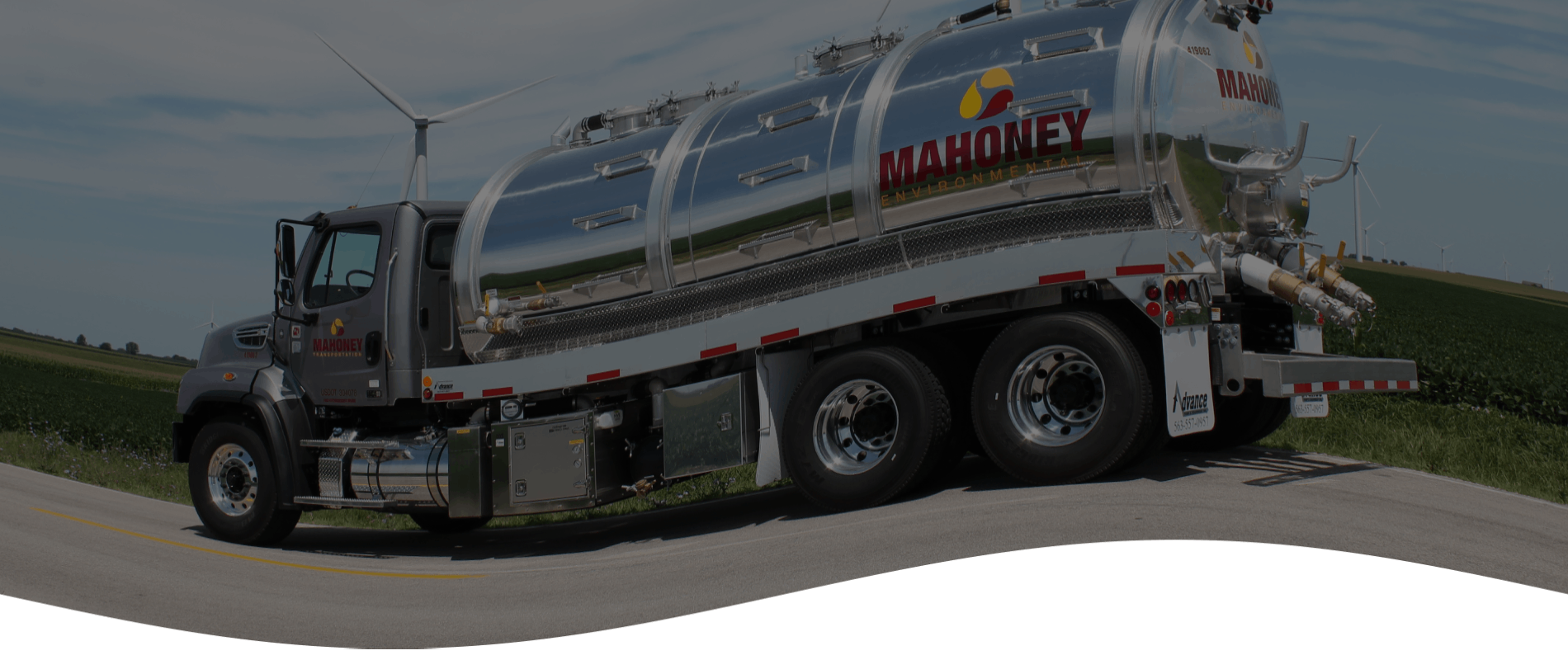Did you know today (March 18) is National BioDiesel Day? Did you know that Mahoney Environmental’s fleet also runs on biodiesel?
National Biodiesel Day is observed annually on March 18th – the birthday of Rudolph Diesel.
Rudolph Diesel invented the diesel engine and unveiled it at the World Fair in 1900. The engine was originally designed to run on peanut oil, and R. Diesel was a big believer in the role plant oils could play in fueling America.
In a 1912 speech, Diesel said, “…the use of vegetable oils for engine fuels may seem insignificant today, but such oils may become, in the course of time, as important as petroleum and the coal-tar products of the present time.”
Biodiesel is a cleaner burning, petroleum-free alternative to diesel that can be made from animal fat, vegetable oil and recycled cooking oil. It is reducing U.S. dependence on imported diesel and creating green jobs as well as improving our environment. Biodiesel is America’s first advanced Biofuel and has become an increasingly popular fuel.
Sited: https://nationaldaycalendar.com/national-biodiesel-day-march-18/
Midwest Transportation Fleet Turns to Biodiesel
Mahoney Environmental collects used cooking oil from restaurants and sells it to biodiesel producers to be made into the renewable fuel. The greater the demand for biodiesel, the greater the demand for its services. But that’s not why the Illinois-based company runs its 160-truck fleet on biodiesel blends. Instead, it’s the performance, financial and environmental benefits the company receives from the renewable fuel.
“At the end of the day, there’s not a lot of argument to be made against using biodiesel,” said Jeff Corbin, the company’s Director of Maintenance and Fleet Operations.
Mahoney Environmental has restaurant customers in all 50 states, picking up used cooking oil, servicing grease traps, providing proprietary equipment for cooking oil handling, and in certain markets, delivering fresh oil. Corbin’s job is to make sure that its full fleet of Class 7 and Class 88 trucks are in good running condition on any given day. So even though his employer is connected to the biodiesel industry, if the fuel didn’t perform, he wouldn’t use it.
With biodiesel, the fleet’s miles per gallon have stayed steady, the added lubricity has reduced wear on engine components, and the cleaner-burning fuel has helped the trucks’ after-treatment systems.
Biodiesel Makes Financial Sense
Biodiesel has also made good financial sense for Mahoney Environmental. It often pays less for biodiesel than petroleum diesel throughout the country. The company gets further savings in its home state of Illinois, where biodiesel blends of B11 and above are exempt from the state’s 6.25% sales tax.
Additionally, compared with petroleum diesel, the fuel reduces emissions of greenhouse gases, total hydrocarbons, carbon monoxide, and particulate matter.
One of Mahoney Environmental’s used cooking oil customers is REG, which uses the waste oil as a feedstock in the biodiesel production process. It’s the relationship with REG and first-hand knowledge of the company’s fuel that persuaded Mahoney Environmental to go from dabbling in fueling its fleet with biodiesel to implementing it across its entire fleet at blend levels of up to B20.
Originally posted on Green Fleet Magazine



 Call Us Now (800) 892-9392
Call Us Now (800) 892-9392